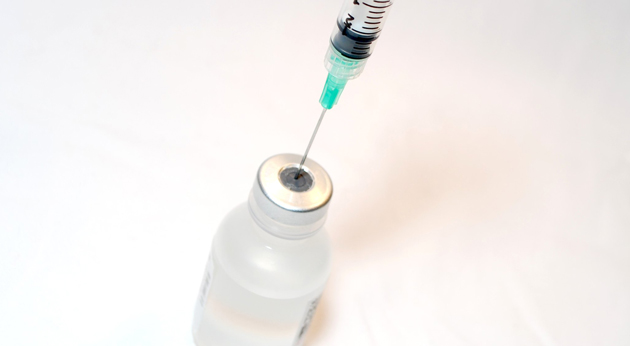The COVID-19 (novel severe acute respiratory syndrome coronavirus 2 – SARS -CoV2) pandemic has had a brutal impact on human life and health across the world, with the only current hope of reprieve lying in widespread immunisation against the disease.
There is no doubt that vaccination can be an effective public health strategy to curb the spread of infection. We each have a God‐given immune system that constantly protects us against infections. As we are exposed to a disease, our immune system naturally works to both defeat it and provide us with immunisation against a future attack. However, diseases such as COVID-19 can be life-threatening or leave us with serious health problems. Vaccination can help us avoid or reduce severity of future infection. Vaccines contain substances which trigger our immune systems to respond and develop immunity to a particular disease, without having to actually experience it.
Historically, Australians have been protected from many serious diseases through effective childhood immunisation programs such as those against polio and diptheria. However, for an immunisation program to be successful, a large majority of the population (the government is currently aiming for 80%) must be vaccinated in order for ‘herd immunity’ to be reached, indicating that vulnerable members of the population (those who for medical reasons CANNOT be vaccinated) will have minimal exposure to the infection. Therefore if many members of the public have concerns about the ethics of vaccination, it could be a serious public health problem.
What vaccines are available in Australia?
The available vaccines are named according to the pharmaceutical company that developed the vaccine: AstraZeneca, Pfizer, Moderna and Novavax (the last two coming soon).
Are vaccines safe?
Australia’s vaccine policy against COVID-19 was originally focussed on the AstraZeneca vaccine, which has proven to be very effective and is responsible for saving many lives in the current outbreak. It reduces infection and transmission rates of COVID-19 as well as rates of hospitalisation and admission to ICU. All medical treatment recommendations are made by balancing risk versus benefit to the patient. Vaccines, like other medication, can cause side effects. Concerns about the AstraZeneca vaccine’s links to a very rare clotting condition last year prompted federal health authorities to recommend the Pfizer vaccine for Australians under 60 years of age. This recommendation was made at a time when there was not much risk of Australians catching COVID-19 in the community.
The balance of risk versus benefit for the AstraZeneca vaccine changed when the Delta variant of COVID-19 reached Australia. Due to the increased risk of infection and serious illness for all age groups due to the Delta variant, the federal government now recommends AstraZeneca for all adults. Changes in health advice should reassure the public that the government is responding to the latest research and ensuring that Australians have the most up-to-date information.
What about vaccines made from aborted fetal tissue?
Tragically, the use of fetal tissue from elective abortions is commonplace in pharmaceutical and medical research, and associated with commercial interests in abortion clinics. There are currently no vaccines created by using cells directly taken from the bodies of aborted fetuses. However, all the COVID-19 vaccines available in Australia have at some stage of development (research, production or testing) used a cell line (HEK-293) that was derived from tissue taken from the kidney of a girl aborted in the 1960s. The cell line was developed in the laboratory of molecular biologist Alex van der Eb at Leiden University around 1972.
My own view is that the key consideration in whether using a vaccine which is manufactured using tissue from an aborted fetus is permissible or immoral is whether there is material cooperation with the evil act of abortion. If the abortion were conducted in order to harvest tissues that were to be used for the vaccine, then it would clearly be immoral. But in the case of the COVID-19 vaccines created using the HEK-293 cell line, the abortion was carried out for other reasons, and the tissue was acquired after the child’s death for the purpose medical research. The use of the vaccine now will not promote further abortions for this particular purpose. It can therefore be argued that we are not morally complicit with the original abortion.
It could be argued that to refuse vaccination (in the event that only an unethical COVID-19 vaccine were available) would also be wrong as it increases the risk of prolonging the pandemic, with its illness and loss of life, and is not a loving way to treat our neighbour. When comparing the competing ethical obligations of avoiding the vaccine in view of the wrong done in the past or refusing to protect the vulnerable in society today, it could be argued that the latter is the more immediate responsibility.
Conclusion
On weighing these arguments, while recognising that this is an issue of individual conscience, in the absence of an ethical vaccine (one that does not involve fetal cell lines at all), Australian Christians are encouraged to accept vaccination on grounds of loving their neighbour, and contributing to the public good. Even though an ethical vaccine is preferred, the remoteness of the evil which led to the fetal cell line makes it more important to avoid contributing to further spread of the COVID-19 virus.
At the same time, Christians should continue to call for ethical production of all vaccines and a ban on future scientific research which utilises fetal cells derived from elective abortion in efforts to halt the trade of human remains.
© Dr Megan Best
Associate Professor of Bioethics
Institute for Ethics and Society
The University of Notre Dame Australia























